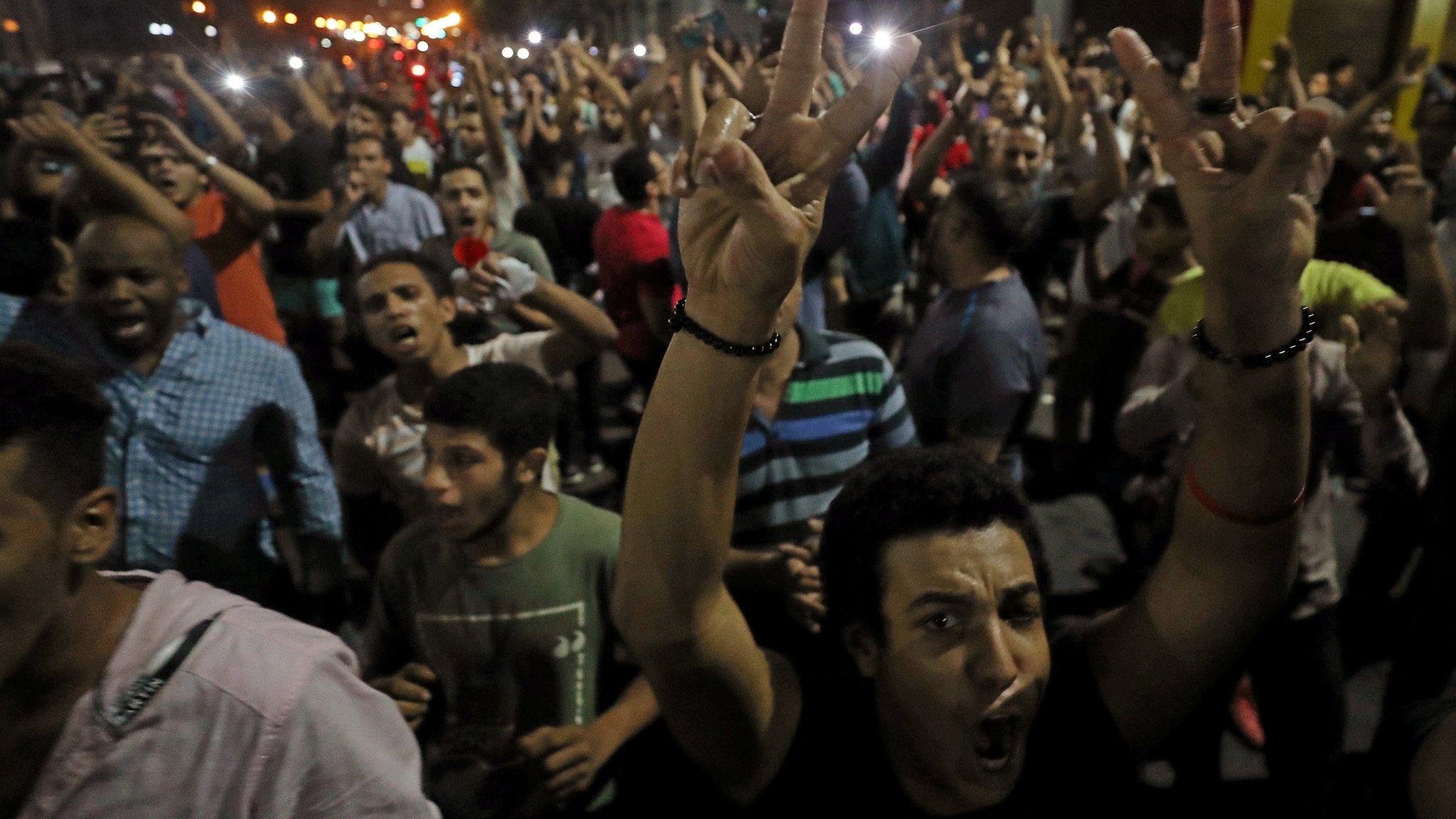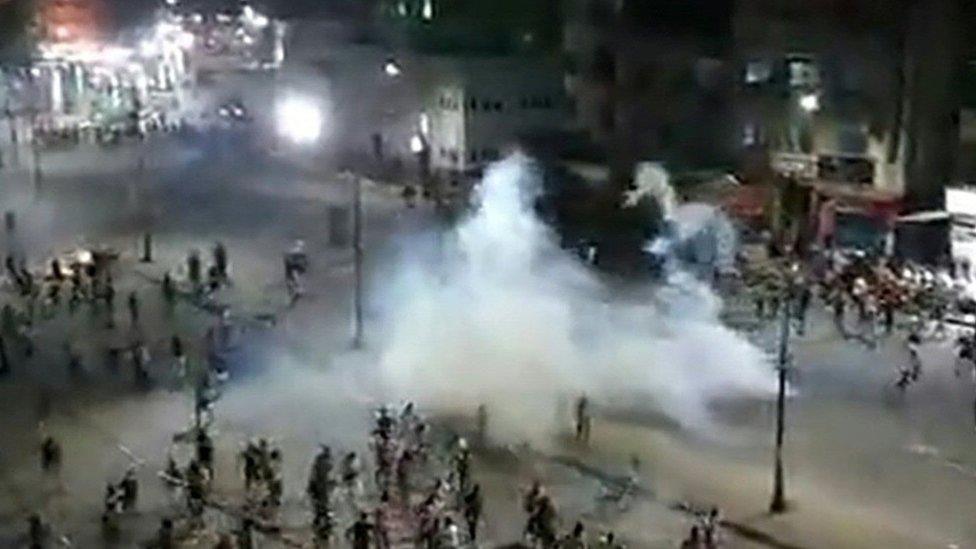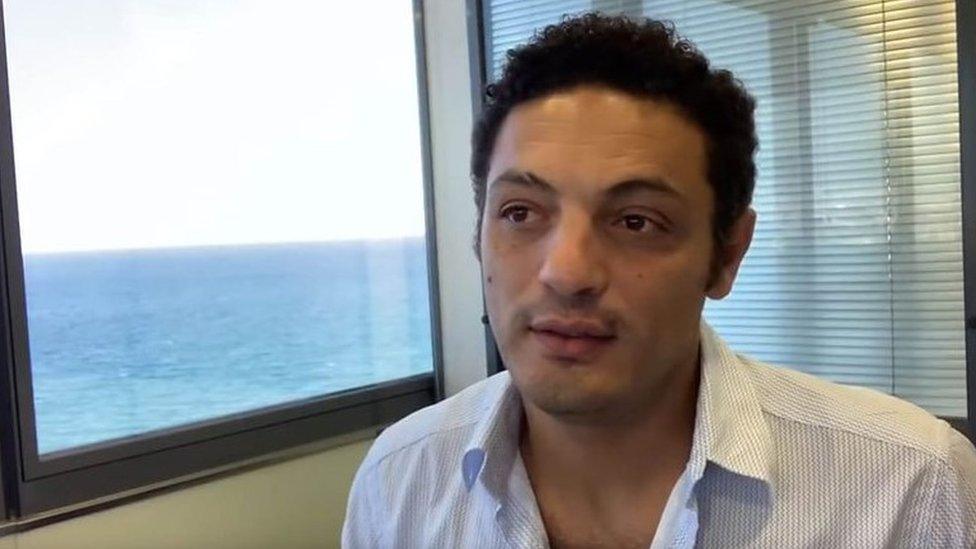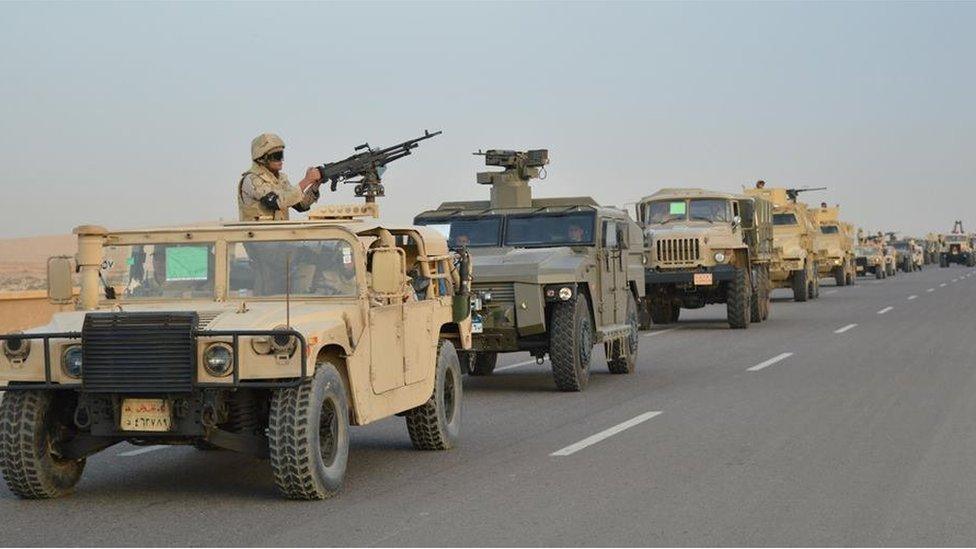Egypt protests: 'Hundreds held' after rare anti-government unrest
- Published
The BBC's Sally Nabil says protesters in Cairo's Tahrir Square were undaunted
Almost 500 people have been detained in Egypt in the past few days after protests against alleged government corruption, human rights activists say.
Demonstrations were reported in Cairo, Alexandria and several other cities on Friday night, and in the port city of Suez on Saturday evening.
The authorities have not yet released an official number of arrests.
Under President Abdel Fattah al-Sisi, there has been a wide-ranging crackdown on dissent, and protests are very rare.
Public gatherings of more than 10 people without government approval have been banned since 2013, when Mr Sisi led the military's overthrow of Egypt's first democratically elected leader, Mohammed Morsi.
At least 60,000 people - most of them members of Morsi's now-outlawed Islamist movement, the Muslim Brotherhood - are reported to have been detained in the past six years; hundreds have been handed preliminary death sentences by courts, and activist say hundreds more have gone missing in apparent forced disappearances.

Unauthorised public gatherings of more than 10 people have been banned since 2013
On Friday night, hundreds of young people took to the streets in the centre of the capital, Cairo - including near Tahrir Square, the focus of the popular uprising that forced President Hosni Mubarak to resign in 2011 - as well as Alexandria, Damietta and Mahalla al-Kubra, according to witnesses and social media.
The protesters reportedly shouted "Leave, Sisi" and "the people want the fall of the regime" before they were dispersed by police using tear gas.
There was an increased security presence on Saturday night, but dozens of people still managed to take part in a demonstration in Suez, witnesses said.
On Monday, local human rights groups said they had been receiving telephone calls from people looking for relatives who had gone missing after the protests.
One lawyer told the BBC almost 500 people were believed to have been arrested, and that they expected the number to rise in the coming days.
The Egyptian Centre for Economic and Social Rights, a non-governmental organisation, said the number of reported arrests had reached 516.

Online videos purportedly showed a confrontation between protesters and police in Suez
Those detained are accused, among other charges, of participating in an outlawed group, spreading false news via social media and protesting without permission. Some are reported to be under the age of 18.
The prominent human rights lawyer, Mahienour al-Massry, was among those being held, her lawyer said. Tarek al-Awadi told AFP news agency she was arrested on Sunday as she walked out of the State Security Prosecutor's office in Cairo, where she had been representing several people detained in connection with the protests.
State media said many social media users had been reposting old footage dating back to the 2011 revolution to mislead the public into believing there was unrest.
Meanwhile, internet monitoring organisation NetBlocks tweeted on Sunday night that Facebook Messenger, BBC News and social media servers had been restricted in Egypt by leading providers.
The protests were prompted by a call from Mohamed Ali, an Egyptian businessman living in self-imposed exile in Spain who has been posting videos on social media since 2 September that accuse Mr Sisi and the military of corruption.
Mr Ali had urged Egyptians to take to the streets on Friday to demand the president step down, and has called for a "million-strong protest" this Friday.
President Sisi has dismissed Mr Ali's allegations as "lies and slander".
- Published24 September 2019

- Published28 May 2019
